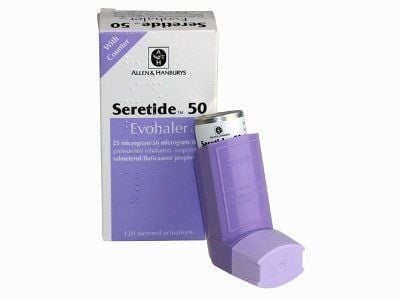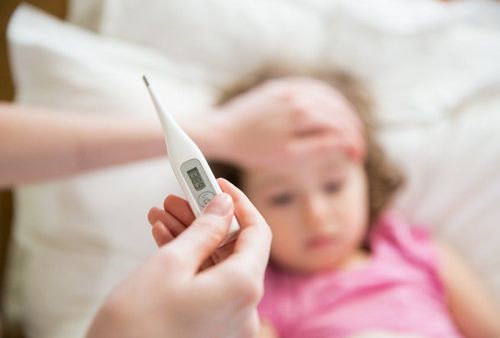Fever caused by a viral infection is commonly referred to as viral fever. Viral fever is more common in children but can also occur in adults. The illness can resolve on its own if detected early and treated properly. So, how many days does viral fever last in adults, and when should I go to the hospital for treatment?
1. What is viral fever in adults?
Viral fever in adults is a common condition that occurs when the weather changes, caused by viral infections. Viral infections can affect any part of the body, such as the intestines, lungs, or the entire respiratory system. The disease is characterized by fever, and if left untreated, it can worsen. Viral fever is a common infection in children and the elderly due to their weaker immune systems or age-related decline in immunity.
Viral fever causes headaches, muscle aches, fatigue, and is highly contagious, especially in work environments where people live and work closely together. The symptoms of viral fever typically include: a high fever above 39°C, fatigue, reduced appetite, and the fever tends to worsen in the afternoon or at night.
2. Symptoms of viral fever in adults
For adults, the most common symptoms of viral fever are:
2.1. Feeling fatigued, with a heavy body
Patients with viral fever often feel fatigued and uncomfortable. In the early stages of the disease, the virus enters the body, causing severe imbalance, but the immune system is unable to recognize and respond, leading to fatigue and a heavy feeling. This is a typical sign of viral fever in adults.
2.2. Muscle pain
In addition to fatigue, the muscles also experience unusual aches. Most of these aches will persist until the illness is resolved.
2.3. High fever
A continuous high fever is the most noticeable sign of viral fever in adults. Initially, the patient's body will have a mild fever, which gradually increases as the infection worsens. At this point, the patient needs to quickly take antipyretic medicine to prevent the fever from reaching 40-41°C, which carries a high risk of serious complications and even death.
2.4. Nasal congestion
Nasal congestion is a common symptom in adults with viral fever and can cause discomfort. The patient is advised take medicine to treat this symptom to minimize its negative impact on the respiratory system.
2.5. Cough and runny nose
This is another symptom of viral fever affecting the respiratory system. Patients often experience coughing and a runny nose when contracting viral fever. This increases the risk of spreading the virus to those around them. Therefore, you should use a separate towel, keep it clean, and limit contact with others. It is best to rest at home or stay in an isolated area to minimize the risk of spreading the virus.

2.6. Red rash on the skin
A skin rash is a fairly common symptom of infections and allergies, making it difficult to differentiate. To make a more accurate diagnosis, it is necessary to consider one's overall health along with other symptoms.
For symptoms of viral fever in adults, when feeling unwell or suspecting an infection, it is important to visit a doctor for the most correct diagnosis to avoid delays and prevent the illness from becoming more severe. So, if diagnosed correctly, how long does viral fever last? Follow the next content here.
3. How long does viral fever last in adults?
As for the question “How long does viral fever last?”, in most cases, adults tend to suffer from the virus for a longer and more severe duration than children. This is because, when sick, adults often have a more complacent attitude, hesitate, and fail to seek proper treatment, thinking that it is just a regular fever. As a result, many adults infected with the virus continue to go to work and live with healthy individuals, causing the illness to spread quickly. Furthermore, irregular eating habits and various other subjective factors contribute to the rapid deterioration of the body.

4. Do adults with viral fever need to go to the hospital?
For mild viral fever, adults can self-treat at home with antipyretics, vitamin C, and electrolyte balancing medicines. For more severe cases, the patient should be taken to a doctor for examination, testing, and diagnosis to receive an appropriate and timely treatment plan.
When adults have viral fever, they should prioritize resting in a cool place, eating easily digestible foods, staying hydrated, and replenishing electrolytes. It is also important to avoid contact with others. In particular, when symptoms of the illness are noticed, treatment should begin immediately or the patient should see a doctor for a check-up to avoid complacency and prevent complications later on.
Please dial HOTLINE for more information or register for an appointment HERE. Download MyVinmec app to make appointments faster and to manage your bookings easily.













